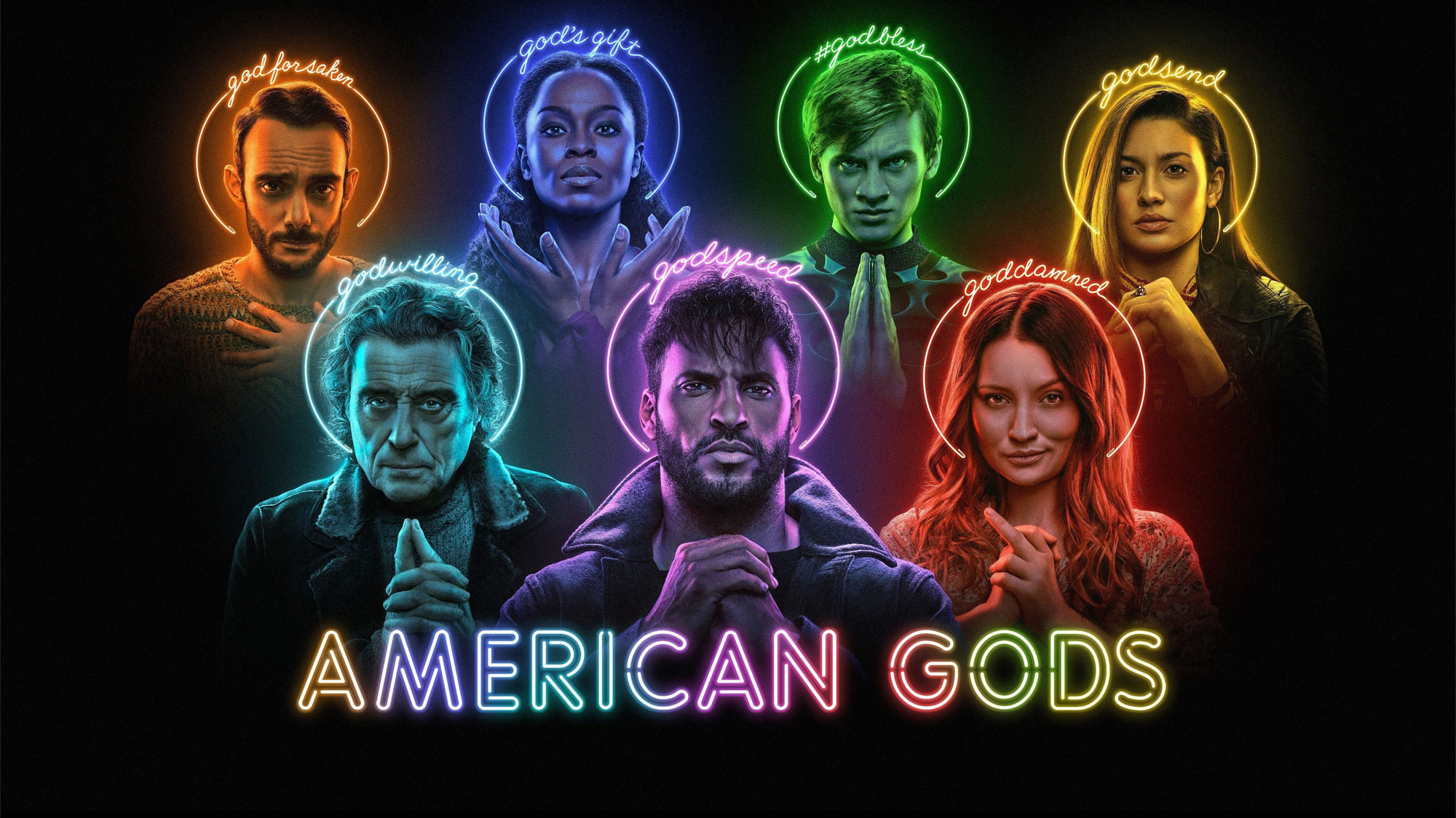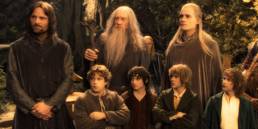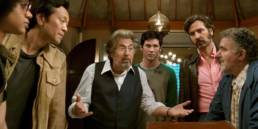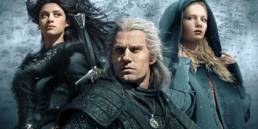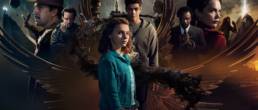
Since I’m not a fan of lists but can’t seem to stop myself from enumerating the best that cinema and television often have to offer, I’ll try a more scholarly approach today mostly because I’m eager to make a distinction between ‘fantasy’ and ‘epic fantasy’ on the small screen. In a previous article, I discussed some of the greatest film franchises to come out of works penned by J.R. Tolkien and Frank L. Baum, to name but two luminaries of the literary genre we know as ‘epic fantasy’.
For the silver screen, the challenge of adapting such works was gleefully accepted and—on several occasions—stupendously met by talented and insanely brave directors. But as audiences worldwide evolve, so does our appetite for the consumption of ‘epic fantasy’ in larger formats. We want more, even if we get it in an episode-per-week ratio. Give us ten seasons of this marvellously detailed worldbuilding sprinkled with gasp-inducing intrigue, and we’re yours forever. Naturally, the demand for televised ‘epic fantasy’ has grown, forcing screenwriters and showrunners to adapt.
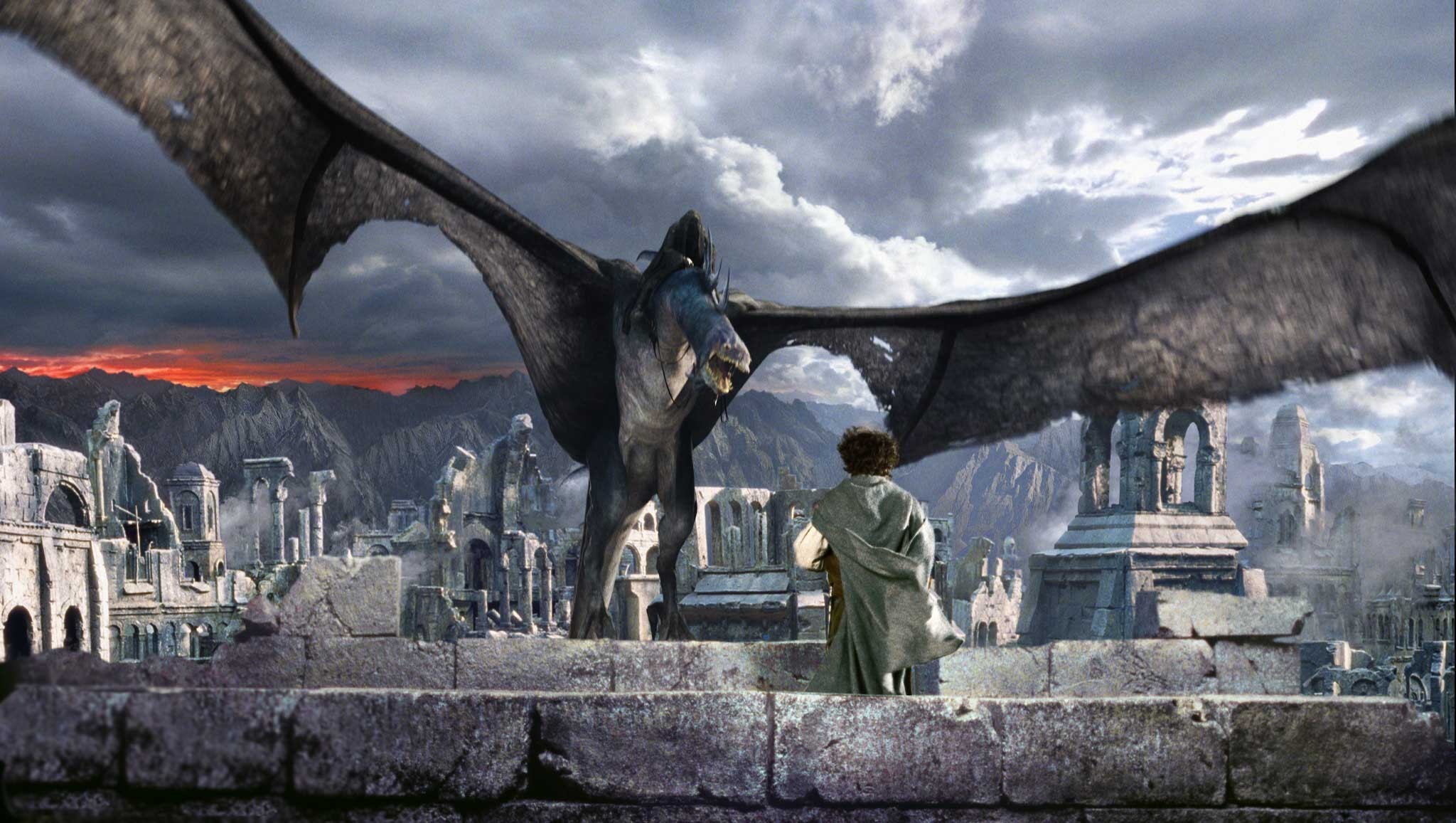 ‘THE LORD OF THE RINGS: THE TWO TOWERS’ (2002), ©NEW LINE CINEMA
‘THE LORD OF THE RINGS: THE TWO TOWERS’ (2002), ©NEW LINE CINEMA
Personally, I don’t think it’s a bad thing, but I do believe we’re coming up short on the ‘epic fantasy’ genre on TV. There are plenty of ‘fantasy’ series to binge on—‘Charmed’ (1998-2006) and ‘Buffy the Vampire Slayer’ (1997-2003) certainly qualify as decent chunks of a starter kit. If you’re deeper into the scary side of things, the ‘American Horror Story’ (2011) anthology will deliver plenty of genuine goose-bumps and squeals. For anime fans, ‘Avatar: The Last Airbender’ (2005-2008) is one of the best that the genre has to offer, and let’s not forget Bryan Fuller’s earlier masterpieces, ‘Dead Like Me’ (2003-2004) and ‘Pushing Daisies’ (2007-2009), both brilliant and equally ahead of their time. Yet we haven’t gotten to the aforementioned ‘epics’!
What does make a story epic, after all? Is it the worldbuilding? For that, I’m inclined to consider ‘Xena: Warrior Princess’ (1995-2001), the infinitely more successful spinoff of ‘Hercules: The Legendary Journeys’ (1995-1999), as a worthy candidate. Lucy Lawless and Greek mythology combined was a good early recipe. Is it the willingness to cross boundaries and try something bold and modern? ‘True Blood’ (2008-2014) comes to mind—and no, I don’t think we’re ready for a remake yet. Then what is it? The fandom, perhaps, that raises a tale to such high-sounding standards? I would be willing to consider ‘Once Upon A Time’ (2011-2018) for task, then, or better yet, the cult darling ‘Supernatural’ (2005-2020), which boasts a spectacular fifteen-year run.
But no. We’re going elsewhere with this. We’re going farther than we have ever gone before, because the market of ‘televised epic fantasy’ has only just begun to blossom, and it’s mostly due to the sheer size of the oeuvres that are being adapted and repackaged for a broader and more patient audience. Developing such projects demands gargantuan sacrifices of time, money, and human resources—settling anywhere below will inadvertently lead to underwhelming, vapid fluff.
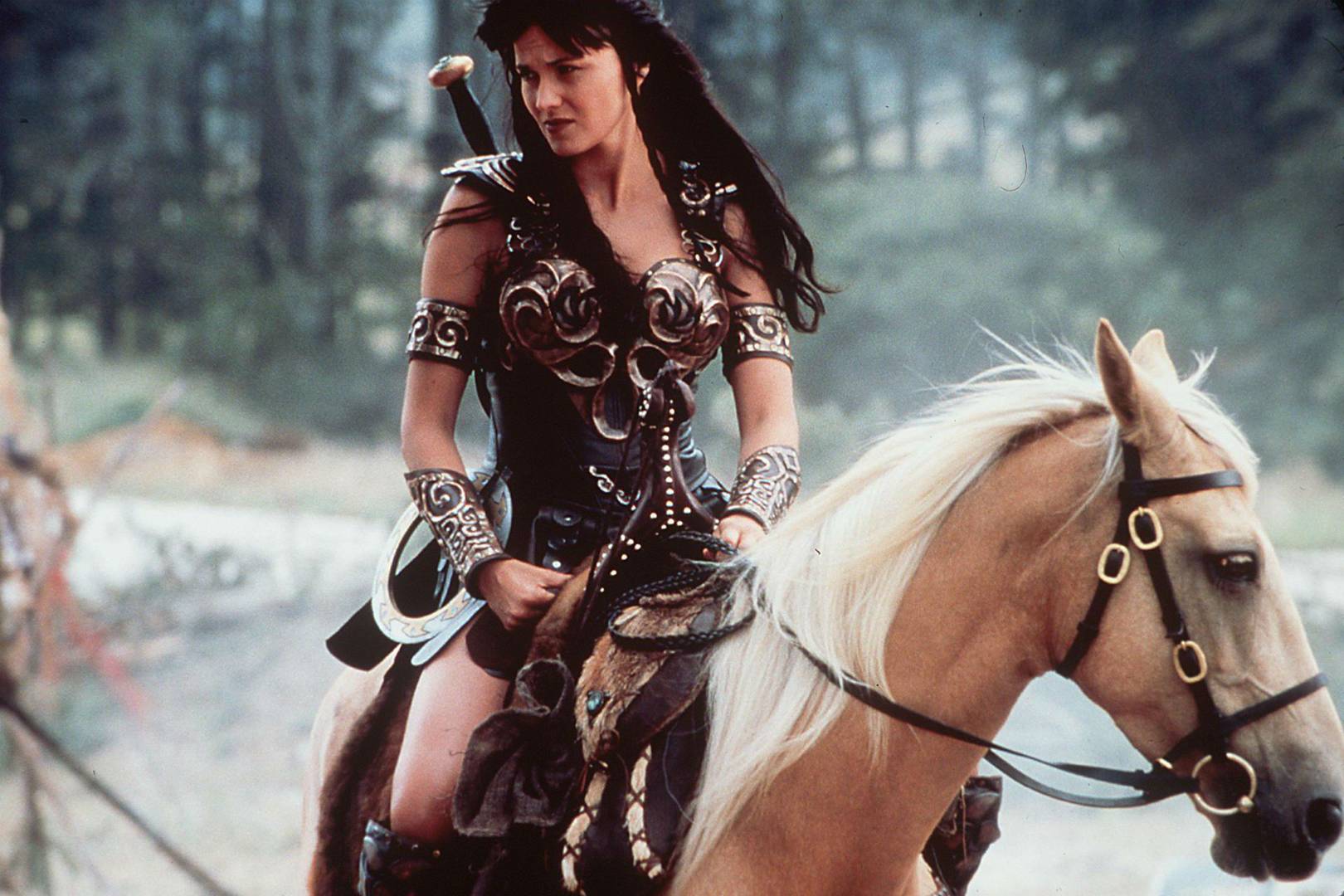 ‘XENA: WARRIOR PRINCESS’ (1995-2001), ©MCA TELEVISION
‘XENA: WARRIOR PRINCESS’ (1995-2001), ©MCA TELEVISION
‘The Magicians’ (2015-2020): Surprisingly Epic
Learning plenty from her work with Eric Kripke on ‘Supernatural’, Sera Gamble teamed up with John McNamara to bring Lev Grossman’s novels to the small screen. When SyFy decided to invest in this show, they were probably aware of the risks—the raunchy magic tale works differently on the page than it does onscreen, yet even so, ‘The Magicians’ stands apart from the rest of the crowd. Sure, there are things I might have done differently with some of the narrative threads, but still…
Story-wise, it is daring enough to be awarded a tiny ‘epic fantasy’ badge. It’s basically ‘Harry Potter’ but with drugs, booze, ancient gods, and potty mouths. Its worldbuilding is complex and imaginative enough, borrowing elements of Greek mythology and quantum physics along the way. It also has a considerable fanbase to work with. Unlike ‘The Shannara Chronicles’ (2016-2017), which was bland and deservedly short-lived, ‘The Magicians’ survived for five seasons as it pushed its young protagonists into difficult situations that required tremendous sacrifices. In some cases, their choices came at a horrific price.
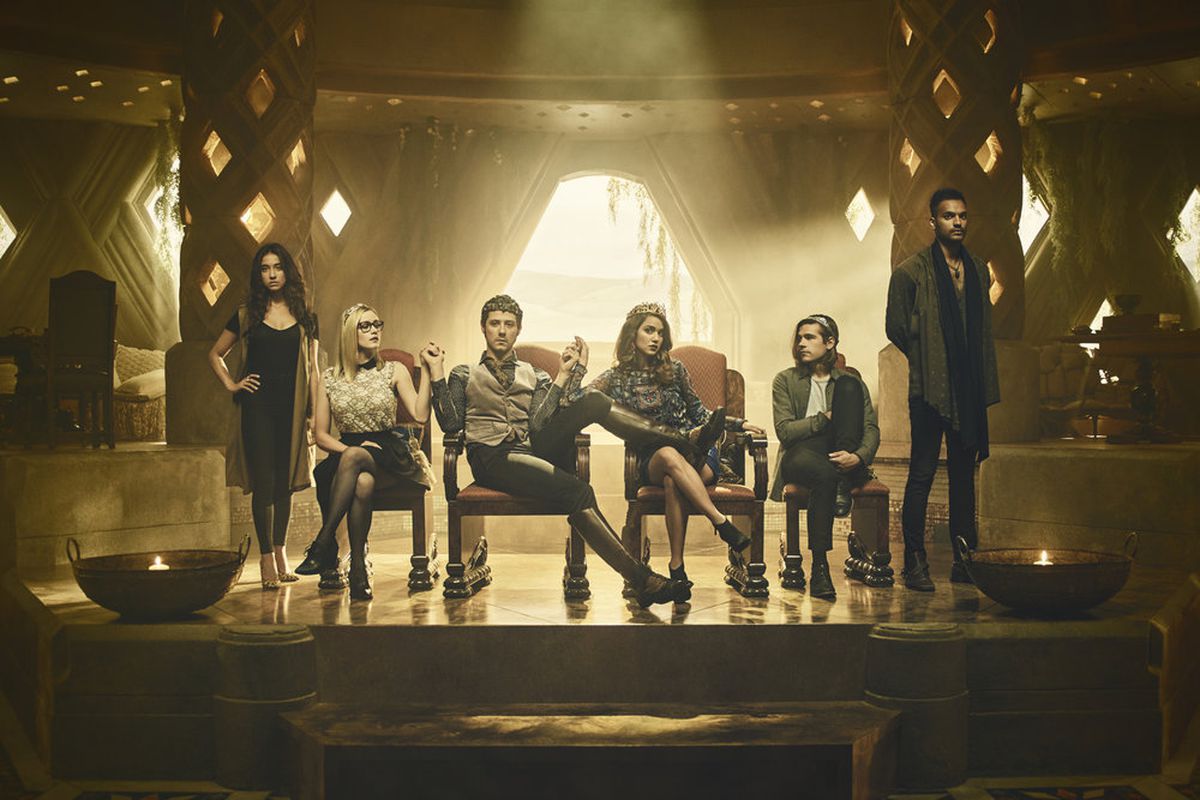 ‘THE MAGICIANS’ (2015-2020), ©NBC UNIVERSAL TELEVISION
‘THE MAGICIANS’ (2015-2020), ©NBC UNIVERSAL TELEVISION
‘American Gods’ (2017): Neil Gaiman Done Right
I’m equal parts doubtful and eager whenever a Gaiman project is announced for television. It’s probably because of the emotional investment that I have in his work. Nevertheless, most of his adaptations have not disappointed, least of all ‘American Gods’, which is based on my favourite book. When it comes to ‘epic fantasy’, this story has every box ticked, albeit with one particularly worrying asterisk.
My only issue with the Starz-produced series is the studio’s inability to retain showrunners—thus losing important actors along the way. The first season, helmed by the brilliant Bryan Fuller and Michael Green, did a wicked job of transforming ‘American Gods’ into high-quality television art. But after budget-related conflicts, Fuller and Green were pushed out of the project, which led to Gillian Anderson and Kristin Chenoweth’s subsequent departure. Jesse Alexander of ‘Heroes’ (2006-2010) fame sort-of took over, though it’s still unclear as to the depth of his involvement—which didn’t last longer than the second season, anyway.
After another hiatus, ‘American Gods’ has finally returned under Charles ‘Chic’ Eglee, better known for ‘Moonlighting’ (1986-1989) and ‘The Shield’ (2004-2008), but even that isn’t without a harrowing loss. According to an expletive-laced video posted on Twitter, Orlando Jones (Mr Nancy) stated that he was fired from the series because the showrunner doesn’t understand his character. According to the actor, Eglee ‘thinks that Mr Nancy’s angry, get s—t done [attitude] is the wrong message for Black America’. Yet when I’m nervous about a Neil Gaiman adaptation, they tell me I’m overthinking…
‘AMERICAN GODS’ (2017), ©FREMANTLE/STARZ!
‘His Dark Materials’ (2019): Now That’s What I Call Epic!
Philip Pullman’s trilogy is one of the best works of fantasy I read whilst coming of age. It’s an ambitious story that follows two gifted children as they wander through a series of parallel universes and fight for freedom and survival against exceptionally dark forces. An especially appealing element is the daemon, a manifestation of the inner-self as an animal being.
Pullman once named John Milton’s ‘Paradise Lost’ among the influences for ‘His Dark Materials’, abruptly rejecting any comparison to C.S. Lewis’s ‘The Chronicles of Narnia’, which he characterised as ‘blatantly racist’ and ‘monumentally disparaging of women’. Needless to say, ‘His Dark Materials’ ascends among the better works of ‘epic fantasy’, and given the author’s direct involvement, HBO’s adaptation does a better job than its feature-length and stale-cotton-candy predecessor, ‘The Golden Compass’ (2007).
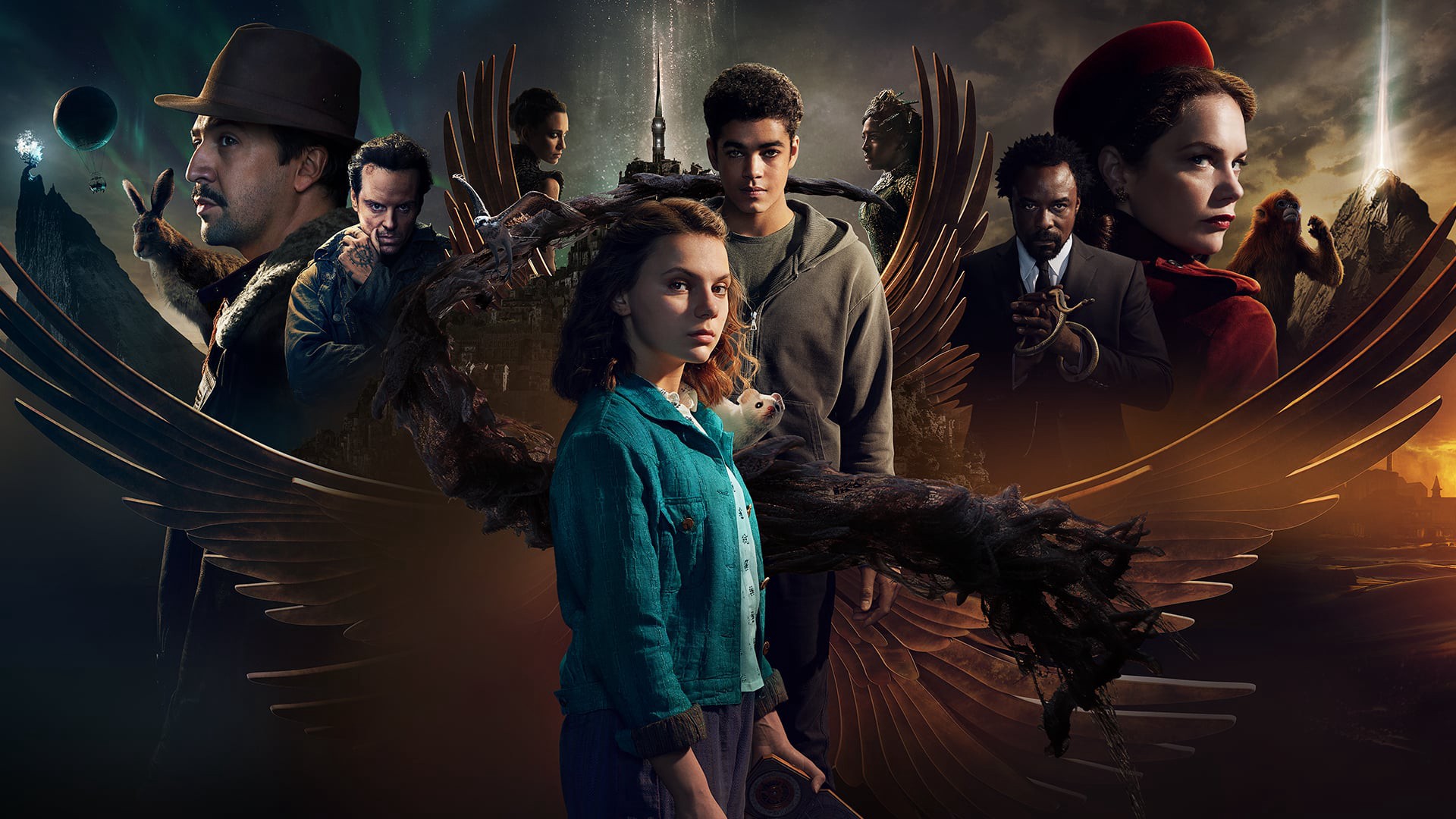 ‘HIS DARK MATERIALS’ (2019), ©HOME BOX OFFICE (HBO)
‘HIS DARK MATERIALS’ (2019), ©HOME BOX OFFICE (HBO)
‘Carnival Row’ (2019): An Absolute Original
As mentioned earlier, the majority of ‘epic fantasies’ come from literature: the story was first told in print, and there were plenty of pages in which to build an imaginary world with extraordinary creatures inspired by myth and folklore. Yet Travis Beacham and René Echevarria pulled off quite the number with ‘Carnival Row’, which blends the tenebrous murder mystery with a Victorian fantasy realm in a way that just… works without a source material.
Of course, the show wouldn’t have the same appeal without Orlando Bloom and Cara Delevingne—the latter having grown visibly as a thespian since ‘Anna Karenina’ (2012). Nominated for three Primetime Emmys, the first season has garnered a hefty round of applause, and I dare hope to see the second season exceed those accolades swiftly.
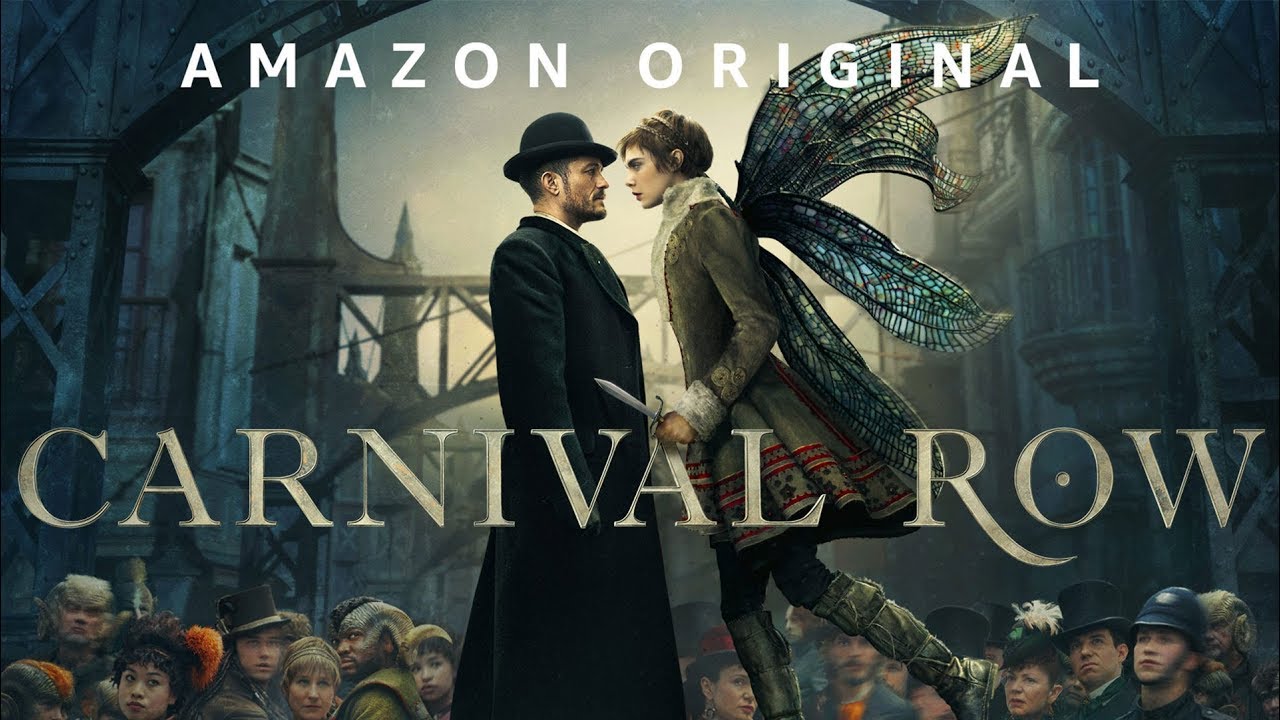 ‘CARNIVAL ROW’ (2019), ©AMAZON STUDIOS
‘CARNIVAL ROW’ (2019), ©AMAZON STUDIOS
‘Game of Thrones’ (2011-2019): The Undisputed Champion
Regardless of what anyone thought about the final season, David Benioff and D.B. Weiss’ adaptation of George R.R. Martin’s extraordinary ‘A Song of Ice and Fire’ novel series is a masterpiece of both television and ‘epic fantasy’. It set a stellar standard to which few, if any others, might ever rise to meet. With such an ambitious source material and HBO’s deep pockets, part of what made the show work was the fearless casting—with the exception of several titular roles, most of the actors were young and fresh-faced when production started, with barely a credit or two to their names. The Stark kids had zero, for that matter.
The first five seasons brought the incredible story of Westeros and the seven kingdoms to life with exceptional detail and an overwhelming love of the cinematic craft—from filming locations to costume and set design, ‘Game of Thrones’ excelled and then some. Given the complex story and multiple main character arcs, the mere fact that D&D pulled it off with barely a hitch was an incredible accomplishment. The first five seasons, however, had the published books to rely on.
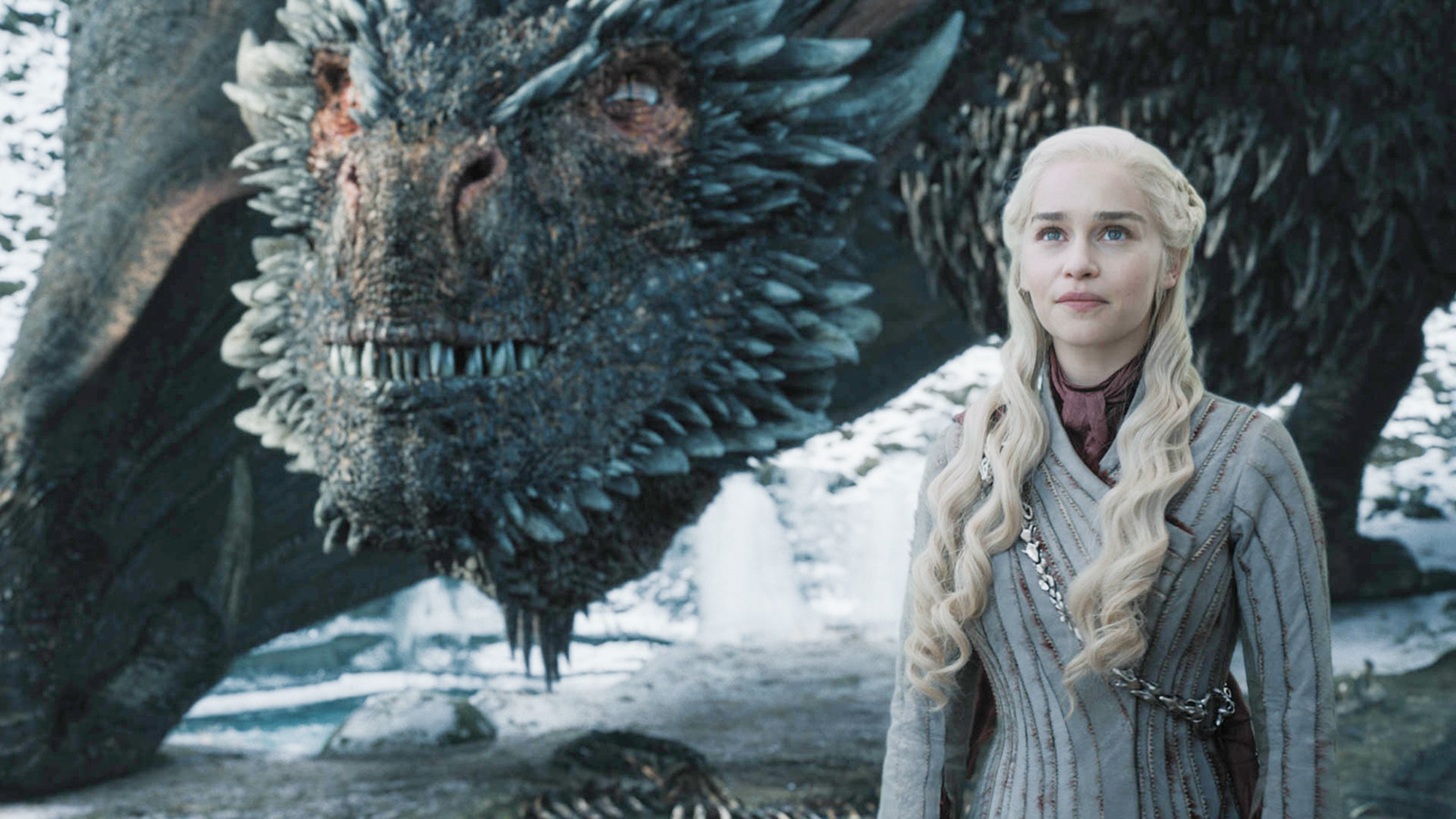 ‘GAME OF THRONES’ (2011-2019), ©HOME BOX OFFICE/HBO
‘GAME OF THRONES’ (2011-2019), ©HOME BOX OFFICE/HBO
With extensive assistance from the author himself, the showrunners pushed through seasons six and seven mostly on their own, with an idea of how Martin saw the story evolving across the upcoming novels, ‘Winds of Winter’ and ‘A Dream of Spring’. The series didn’t fumble, managing its extensive load of characters with sufficient grace. Alas, with a fandom accustomed to nothing beneath exceptional writing, Benioff and Weiss self-sabotaged their grand conclusion by rushing toward the finish line. I wasn’t shocked by Daenerys’s psychotic twist—I paid attention since the first season when she didn’t even flinch while her brother had molten gold poured onto his head. I wasn’t disappointed by Bran becoming king, either, nor by Jon’s retreat into ‘the real North’. It sort-of made sense.
But the final season was… rushed. A few more episodes would’ve smoothed things over and tied up several important loose ends. I cried aplenty when Ramin Djawadi’s score, aptly titled ‘The Last of the Starks’, came on, and I bid the young wolves farewell, knowing their adventures wouldn’t end there. To this day, I have yet to watch anything remotely close to the production brilliance of ‘Game of Thrones’ despite its twilight flaws.
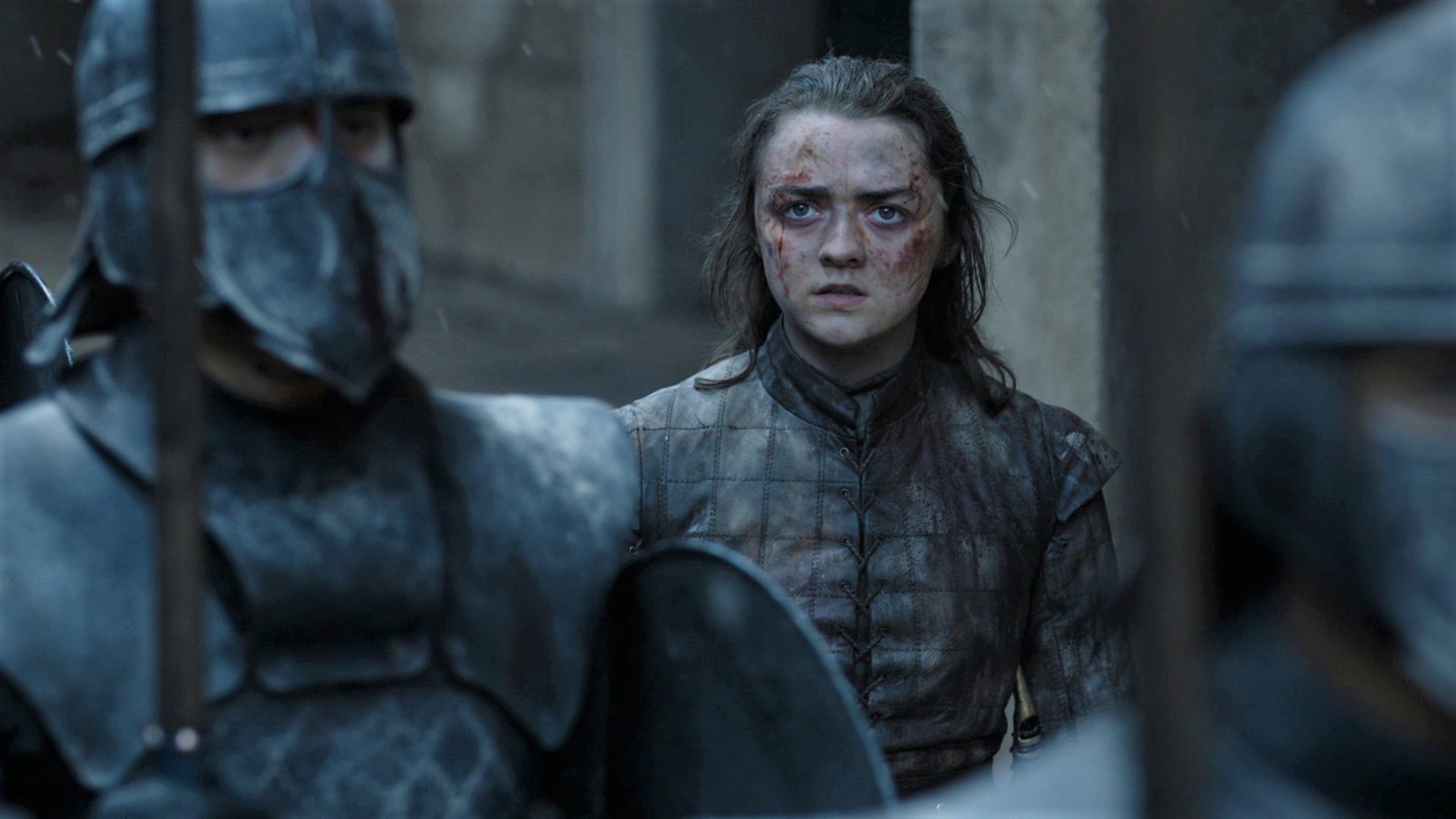 ‘GAME OF THRONES’ (2011-2019), ©HOME BOX OFFICE/HBO
‘GAME OF THRONES’ (2011-2019), ©HOME BOX OFFICE/HBO
Of Epics to Come
Given the titanic success of ‘Game of Thrones’ and George R.R. Martin’s forays into ASOIAF-related prequels, it’s no wonder that HBO has been flirting with a couple more titles. Jane Goldman of ‘X-Men First Class’ (2011) repute was initially set to lead a successor show focused on Westeros’ descent from the bright Age of Heroes into the dreaded Long Night—there was even a pilot shot, starring Naomi Watts.
Alas, the higher powers scrapped the whole project and made way for ‘House of the Dragon’, which is due to air in 2022 and chronicles the Targaryen struggles throughout their 300-year reign since Aegon’s Conquest. So far, Matt Smith, Paddy Considine, Olivia Cooke, and Emma D’Arcy have joined the developing project—the characters they’re set to portray belong to a particular conflict in the history of Westeros, better known as ‘The Dance of Dragons’, which nearly tore the kingdoms apart and decimated the Targaryen’s dragon population. Ryan J. Condal and Miguel Sapochnik will act as writers and showrunners, working closely with George R.R. Martin.
‘House of the Dragon’ isn’t the only project in the pipeline, either, as HBO has recently greenlit a TV series adaption of ‘Tales of Dunk and Egg’, a spinoff following Dunk and Egg on their adventures throughout Westeros before they became known as Ser Duncan the Tall, Commander of the King’s Guard, and King Aegon the Fifth. Little is known about the project at this point, but I’m certainly looking forward to it. I need an ASOIAF fix, stat.
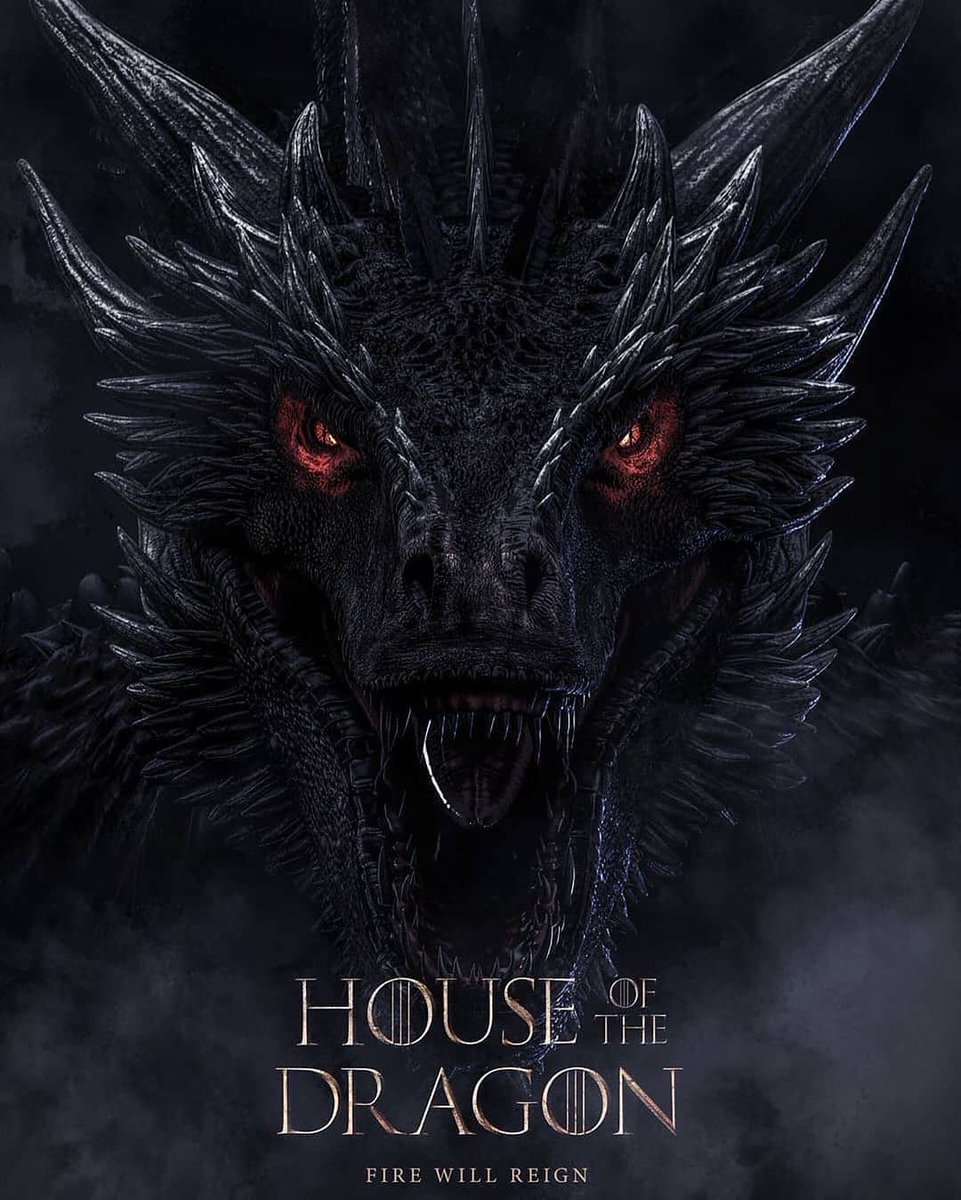 ‘HOUSE OF THE DRAGON’ (2022), ©HOME BOX OFFICE/HBO
‘HOUSE OF THE DRAGON’ (2022), ©HOME BOX OFFICE/HBO
Following the cinematic success of J.R.R. Tolkien’s ‘The Lord of the Rings’ trilogy, Amazon Studios decided to try their hand at a prequel by enlisting the talents of J.D. Payne and Patrick McKay to bring the Second Age of Middle-Earth to life for the streaming giant. It’s been in the works for a couple of years now, with casting that took place around the world and extensive negotiations with the government of New Zealand. Filming began last February in Auckland, listing Robert Aramayo, Cynthia Addai-Robinson, Ian Blackburn, and Maxim Baldry among the actors involved.
Ultimately, these are exciting times… There is plenty of room for ‘epic fantasy’ in the land of TV. The stakes were set high—very high, actually, and that’s a wonderful starting point. May the upcoming series soar beyond what has already been aired and may no other showrunner ever rush and pull a D&D ever again.
Jules R. Simion
Jules is a writer, screenwriter, and lover of all things cinematic. She has spent most of her adult life crafting stories and watching films, both feature-length and shorts. Jules enjoys peeling away at the layers of each production, from screenplay to post-production, in order to reveal what truly makes the story work.
The Silver Screen’s Greatest Works of Epic Fantasy
If there is one thing that truly makes us unique among Earth’s creatures, it’s our ability to tell…
Hunters: The Holocaust Revenge Fantasy We Needed
Given today’s political climate and the resurgence of white nationalism in countries that once…
The Witcher: Good, Not Great Fantasy
When Netflix first announced its plans for ‘The Witcher’, many fans of the eponymous videogames…
Don't miss out
Cinematic stories delivered straight to your inbox.
Ridiculously Effective PR & Marketing
Wolkh is a full-service creative agency specialising in PR, Marketing and Branding for Film, TV, Interactive Entertainment and Performing Arts.
